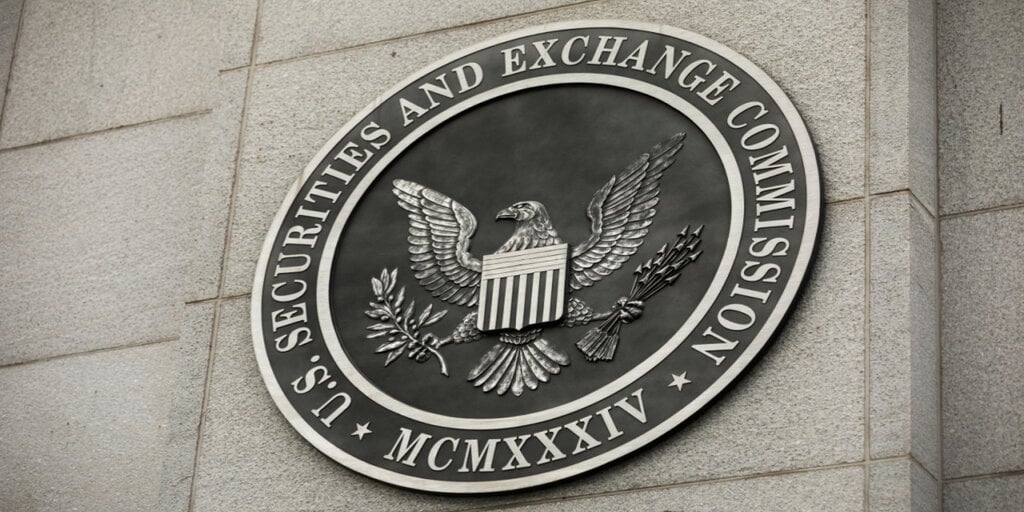Web3🌑Friday Trends: Binance Fined, Meme Coin Index Launched, SEC Blocks Exodus, EigenLayer's Airdrop
1. Canadian Regulator Fines Binance $4.3M for ‘Administrative Violations’
2. VanEck Unveils Index Tracking Meme Coins like Shiba Inu, Dogecoin
3. SEC Blocks Exodus' NYSE Listing, Company Expresses Disappointment
4. EigenLayer's EIGEN Airdrop Raises Questions on Fate of 'Points' System
Explore further below 📢
Welcome to the frontier of Web3! In today's fast-paced digital landscape, staying informed is key. Join us as we delve into the latest developments shaping the world of cryptocurrency and decentralized technologies. From regulatory fines to innovative index launches and unforeseen setbacks, the realm of Web3 never ceases to amaze. Buckle up as we navigate through the headlines of Binance's regulatory challenges, VanEck's meme coin index, Exodus' SEC hurdles, and EigenLayer's intriguing airdrop dynamics. Get ready to expand your understanding and stay ahead of the curve in this dynamic and ever-evolving ecosystem. Let's embark on this journey together and explore the exciting world of Web3!
1. Canadian Regulator Fines Binance $4.3M for ‘Administrative Violations’
Canadian regulators imposed a $4.3M fine on Binance for unregistered services and unreported transactions over $10K. Binance failed to register as a foreign money services business and neglected to report nearly 6,000 transactions. The Financial Transactions and Reports Analysis Centre of Canada (FINTRAC) found the violations using blockchain explorer tools. This penalty comes after Binance's $4.3B fine in the US for breaching anti-money laundering laws. Additionally, former CEO Changpeng "CZ" Zhao received a four-month prison sentence in the US for inadequate KYC/AML compliance. Binance also faces legal challenges in Nigeria, accused of money laundering and tax evasion, with an executive detained for similar charges.

2. VanEck Unveils Index Tracking Meme Coins like Shiba Inu, Dogecoin
VanEck introduces the MEMECOIN index, monitoring meme coins such as Dogecoin and Shiba Inu, signifying the increasing acceptance of meme coins in the market. This index, encompassing six major meme coins by market capitalization, including Pepe, Dogwifhat, Floki, and Bonk, underscores the diversification of risk by capping each coin's weighting at 30%. Despite meme coins' notorious volatility and hype-driven nature, VanEck's initiative highlights their evolving utility and widespread recognition. Notably, companies like Tesla and NBA's Dallas Mavericks now accept Dogecoin as payment, enhancing its real-world applicability. Additionally, Shiba Inu's innovative projects and ventures into privacy-focused networks reflect the expanding horizons of meme coins beyond mere speculation. With meme coins emerging as top performers among crypto assets, their surge underscores the profound influence of community engagement and investor sentiment in shaping the crypto landscape.

3. SEC Blocks Exodus' NYSE Listing, Company Expresses Disappointment
Exodus Movement faces disappointment as the SEC postpones its NYSE listing. The surprise decision delays the crypto company's plans, prompting confusion and frustration. Despite setbacks, Exodus reiterates its commitment to empowering global users with its self-custody crypto wallet. CEO JP Richardson expresses hope for the SEC to uphold legal obligations. Exodus, which went public in 2021, aimed to list its common stock on NYSE American, with plans for tokenization on Algorand. The SEC's strict stance on crypto regulation poses challenges, but Exodus remains determined to navigate these hurdles while serving its community.

4. EigenLayer's EIGEN Airdrop Raises Questions on Fate of 'Points' System
EigenLayer's much-anticipated airdrop sparks controversy with delayed token transfers, regional exclusions, and unclear distribution plans, shaking investor confidence. Despite amassing $16 billion in crypto deposits and generating excitement, the project's missteps raise doubts. Critics question token convertibility and fairness, reflecting broader concerns about crypto incentives. Renzo and Blur faced similar setbacks, indicating a potential shift in crypto startup strategies. Industry voices like Mike Silgadze and Robert Leshner express skepticism about the sustainability of point-based rewards, suggesting EigenLayer's troubles may signal the end of this approach in crypto startups.

As we conclude our exploration of today's Web3 news, it's evident that the cryptocurrency landscape is as dynamic as ever. Remember to stay informed, stay vigilant, and stay engaged in the evolving conversation surrounding Web3. As the journey continues, we'll be here to provide you with the latest insights and updates. Whether it's navigating regulatory challenges or embracing technological innovations, the possibilities within the world of Web3 are vast and ever-expanding. Thank you for joining us on this journey, and until next time, keep exploring, keep learning, and keep pushing the boundaries of what's possible in the exciting realm of Web3!








